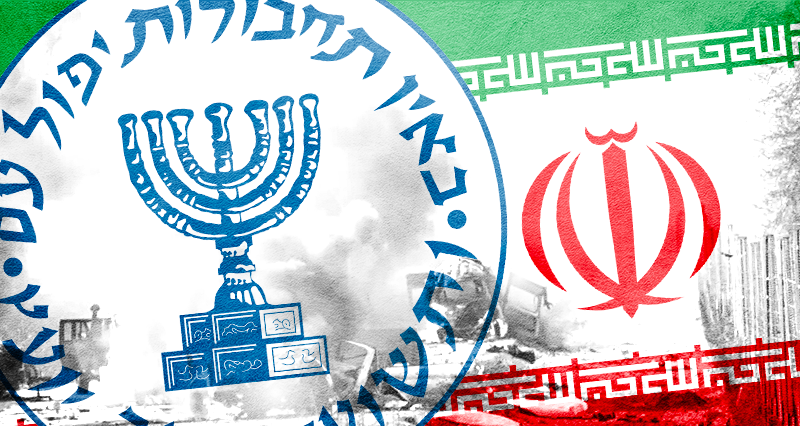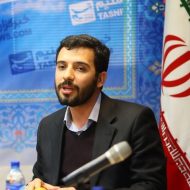While the world’s attention has been focused on the riots in Iran, in the recent weeks, as a result of the propaganda tsunami of the major global media outlets, the Iranian military forces conducted a major missile operation in the western region of the country.
Since the last week of September, the IRGC carried out a series of missile attack operations against the positions and bases of separatist terrorist groups in the Iraqi Kurdistan region, which has since been temporarily halted.
Dozens of terrorists have been killed and hundreds more injured in the operation. Nearly all of the bases belonging to various factions have been forced to close, and several other terrorist bases have been razed to the ground.
But, why did Iran conduct this missile and drone operation while it was engaged in domestic unrest? What is the overall purpose of the operation?
A warning on any act of terrorism against Iran
Following the Islamic Revolution in Iran in 1979, a number of terrorist organizations in the Kurdistan region began conducting armed operations against the government and popular Kurdish forces.
The ultimate aim of these militia groups’ operations, which frequently included the horrific slaughter of Iranian citizens, was supposedly to disintegrate Iran and establish a separate Kurdish state.
However, the events in Türkiye in the 1980s and the stepped-up actions of the PKK militia groups there, showed that the general objective of these terrorist groups has always been to sow terrorism and disorder, not only in Iran, but throughout the entire region.
Following the end of the Iraq’s imposed war against Iran and the expulsion of most terrorist organizations from the country, some of these organizations made the Kurdistan region of Iraq their primary operational base during the Persian Gulf War with the assistance of the United States.
This has led to a new wave of terrorist activities against Iranian interests by these militia groups, who were warned not to engage in militia and terrorist activities against Iran, in the 1990s.
However, they continued to do so, which caused reaction from Iran. In one such case, that was later revealed in 1996, necessary warnings were given to these groups by Iranian commandos as well as the Baghdad administration through political channels, forcing them to refrain, at least for a while, from serious militia and terrorist activities against Iran.
Terrorist organizations: the United States’ go-between for fomenting insecurity in the region
However, these groups received substantial financial and logistical support once more following the US invasion of Iraq, and they made many attempts to attack Iranian border stations in an effort to kill Iranian military and security personnel.
This led the Iranian Islamic Revolution Guard Corps to finally launch a massive offensive against these groups’ positions between 2009 and 2011 following the requisite warnings and relatively modest attacks.
As a result of these extensive artillery and missile attacks, which was supported by ground forces, terrorist organizations once again withdrew into the region’s territory and vowed not to engage in terrorist activities.
A while later in 2018, Iran once again used Fateh 110 missiles, which have a range of more than 300 kilometers and a high level of targeting capabilities, to hit the bases of these terrorist groups, when one of them attacked a border station and killed numerous Iranian military officers.
Operational cooperation with Mossad: A grave mistake
The statements by the Iranian security and military officials with the start of a large-scale missile operation against terrorist groups in northern Iraq indicated that the attack was launched after the operational coordination of these groups with the Israeli spy agency Mossad, was confirmed.
Iranian officials stressed that these terrorist groups have become one of the executive arms of Israel’s spy services to the extent that Mossad has planned operations using the elements of these terrorist groups inside Iran.
In the latest instance of such operations, Mossad selected a team from the terrorist organization Komalah to attack an Isfahan nuclear power station. The crew received months of training from Israeli officers in an African country, and as part of their training, they even conducted over 70 mock operations on a simulated replica of the centre.
The terrorist team entered Iran after receiving professional training, made their way to the operation site, and only a few hours before the operation was to be carried out, Iranian security forces detained them.
With the capture of this terrorist outfit, Iran’s intelligence services are now aware of the direct and practical links between terrorist organizations and Israel’s spy agencies, and Iran decided to demonstrate the costs associated with this cooperation.
After revealing the severity and operational cooperation of these terrorist groups in the Kurdistan Region, Iran launched more than 73 tactical ballistic missiles, including Fath 360 missiles as well as numerous suicide drones, towards the bases of the four terrorist organizations including Democratic Party, Komalah, Pejak, and Pak (Free Kurdistan Party), in the first stage of its operation.
While some of these organizations have relocated their bases to a depth of more than 100 kilometers within Iraqi territory to stave off any Iranian assaults, this operation is still underway.
However, regardless of their distances, Iran was able to deal major blows to these militia groups with its drones and precision-guided missiles, causing a total destruction of some of these groups’ important bases.
Will the operations continue?
Since 2018, striking and eliminating the threat at its source, has become Iran’s primary military strategy and demonstrated it’s sensitivity to significant actions that are hostile to its interests.
Following the initial phase of this operation, Iran declared that it had temporarily halted its operations in order to assess how the Erbil authorities were containing these groups. Iran said that the continuation or discontinuance of these operations would depend on how the Erbil authorities behaved.
Iran has said that the IRGC will begin operations against terrorist groups if there are no constraints on these organizations and if Mossad actions continue near Iran’s borders, and in doing so, it reserves the right to decide how the operations will be carried out.
At the same time as this operation, Major General Bagheri, the Chief of Staff of Iranian Armed Forces, announced that 3,000 terrorists were stationed in northern Iraq against Iran, with a significant portion of them actively prepared to take action against Iran and, in certain cases, they have established workshops for making bombs in order to attack Iran.
He emphasized that with its attack on the Mossad’s operational headquarters in Erbil for several months, Iran has demonstrated its strength and intelligence capablity to keep an eye on these groups’ activities. Iran also reserves the right to conduct operations against these groups if this situation persists.
In a meeting with Qasim al-Aarji, the Iraqi national security adviser who had traveled to Tehran following these operations, Iran’s minister of foreign affairs, Hossein Amirabdollahian stressed the importance of the Iraqi central government and the Kurdistan Region of Iraq taking full responsibility for dealing with terrorist organizations and stated that Iran will not tolerate terrorists’ ongoing presence and their activities in Iraq’s Kurdistan.









Leave a Reply